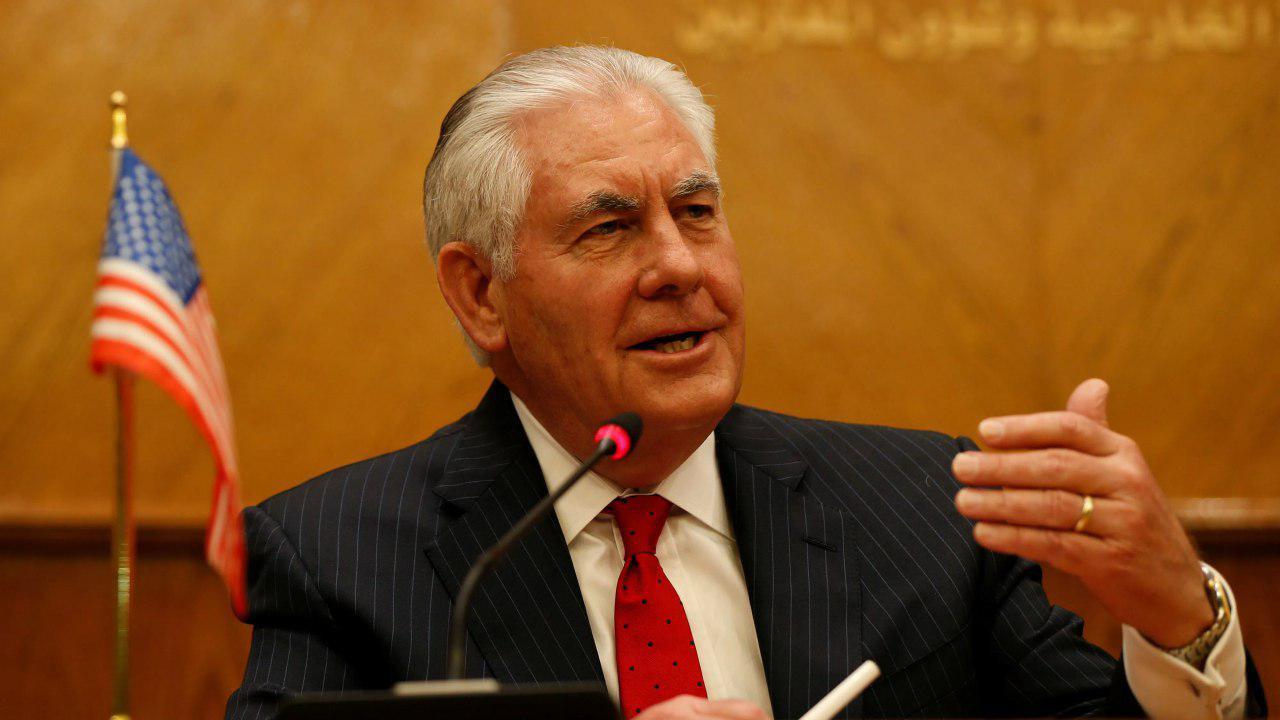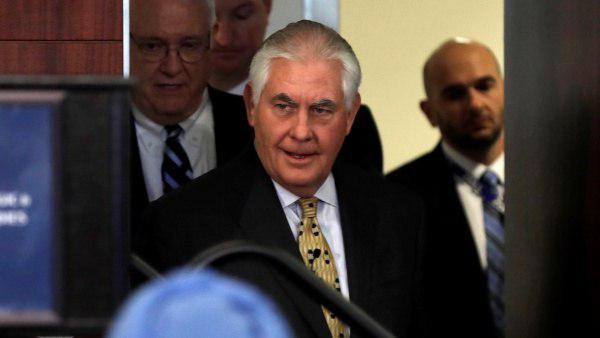WASHINGTON, March. 2 (Xinhua) — The State Department said Friday that U.S. Secretary of State Rex Tillerson will outline his country's relationship with Africa and its "desire to strengthen ties with African partners."
Prior to his visit to Africa, Tillerson is scheduled to deliver the remarks at George Mason University in the U.S. state of Virginia.
Tillerson will kick off his maiden trip to Africa next week as the country's chief diplomat, which will bring him to Ethiopia, Djibouti, Kenya, Chad and Nigeria on March 6-13.
In a special briefing about his trip via teleconference earlier on Friday, senior State Department officials said his trip is "an outgrowth of" and "a kind of follow-up" on the ministerial meeting involving 37 ministers from Africa in November, 2017.
"Africa in the year 2100 is going to form 40 percent of the world's population, over 30 percent of the work force, yet also have the potential of having 50 percent unemployment rate, which is very high. That is a security issue, an economic issue problem, but more important, it's also an opportunity," said the officials.
Speaking of the U.S. self-positioning in Africa, officials said "it's going to be based on - not only on economic and commercial development, but in the context of building strong institutions, governance, and security, as well as human rights."
Djibouti, which accommodates the only permanent U.S. military base on the continent, has become "the main refueling spot for all U.S. naval ships. U.S. officials said the country "is not just a base for counterterrorism but also to support the security of all the other countries in the region."
In Chad, Tillerson will try to help the nation get off the visa sanctions list. "We also want to give Chad importance because they're part of the G5 (a regional security bloc in central Africa) countries and their troops have made a tremendous amount of sacrifices in providing troops in supporting Mauritania and Niger and other countries in the G5 area."
In Kenya, which houses the U.S. largest embassy in Africa, Tillerson is expected to discuss with the ruling government and opposition how to build strong institutions and "advance political and economic reform that will help in the transition process."
In Ethiopia, Tillerson will discuss with the Ethiopian government "institution building, human rights, engagement, community leadership," among others.
"And also because of its 8-percent economic growth rate, it really is - becomes an engine for economic growth for the entire region. So that's - so we're trying to look at how we can work with that country," the officials said.
The two sides will discuss the agricultural sector where Ethiopia has economic advantages and opportunities, such as coffee and flour as well as the development of girls' education and expanding electrification to help the country's industrialization.
In Nigeria, the two sides will discuss issues that are "much more broad-based, comprehensive, and really interrelated with security," since "what happens in Nigeria is going to affect the Lake Chad region, and that includes Cameroon as well as the G5 countries," said the officials.
"Some of the issues and challenges that we'll be working on is political institutions, political dialogue, reconciliation, supporting community-based development, helping growth, education. And then on the other hand, is the security, particularly in the north," said the officials.
"It just can't be constantly a kinetic strike operation or bring in U.S. military. That s not the answer," they said. "So those are some of the things that we're looking at, but again, it's complex, no easy answers, and I think we probably need to have a much more in-depth discussion."
"So we're very hopeful. We're very high on Africa," they said.
The visit comes amidst lingering worldwide uproar over Trump's vulgar remarks towards African and Latin American nations.
In January, Trump reportedly used the word "shithole countries" to describe African nations as well as Haiti and El Salvador while discussing immigration issues with U.S. lawmakers.
The African Union issued a statement calling Trump's remarks outrageous and hurtful.
"While expressing shock, dismay and outrage, the African Union strongly believes there's a huge misunderstanding of the African continent and its people by the current (U.S.) administration," the statement read.
Trump denied using vulgar terms, saying the language he used was "tough, but this was not the language used."




